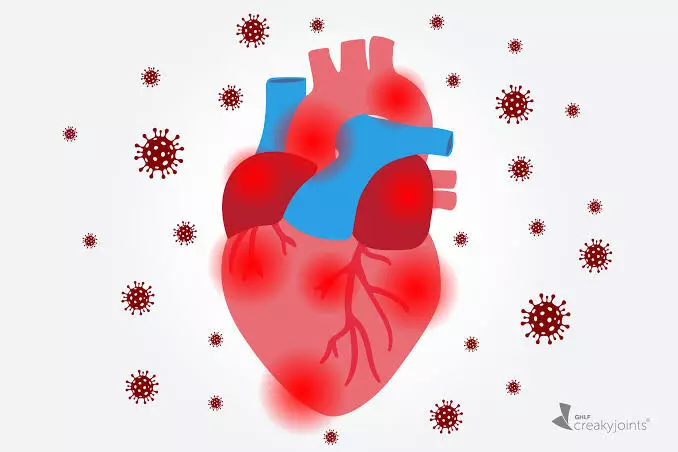Long Covid-19 and its impact on the heart
Dr. Sai Ravi Shanker, a senior interventional cardiologist, says, "We are noticing many post-Covid patients with inflammation of coronary arteries and thrombosis—clots in the artery. Some of those infected with SARS-Cov2 develop an abnormal blood clotting and there is a massive inflammatory response in the body."
By Kaniza Garari
Hyderabad: The long Covid-19 has manifested a higher-than-normal incidence of irregular heartbeats, inflammation of heart muscles, and increased rate of thromboembolism in those who suffered from Covid-19.
The cases of irregular heartbeat and inflammation are very high when compared to those before Covid-19.
Those in the young and productive age group of 25 to 35 years are reporting to hospitals with symptoms.
Dr. Sai Ravi Shanker, a senior interventional cardiologist, says, "We are noticing many post-Covid patients with inflammation of coronary arteries and thrombosis—clots in the artery. Some of those infected with SARS-Cov2 develop an abnormal blood clotting and there is a massive inflammatory response in the body."
Dr. Shanker narrates a recent incident of a patient who came with a history of Covid-19 and developed severe inflammation in the body. The patient underwent treatment for two weeks but succumbed.
Cardiologist Dr. M.S.S Mukherjee says there is a definite increase in heart disorders in the post-Covid phase. "There are two reasons for this: some of the factors are related to the aftermath in the body when the patient was infected with SARS-Cov2, and the other factor is the lifestyle of patients, including lack of exercise, indiscriminate food intake, lots of stress, and lack of preventive measures. These factors combined have led to an increase in the incidence."
What trail did SARS-Cov2 leave in the human body?
Coronavirus affected the inner surfaces of veins and arteries leading to inflammation, damage to very small vessels, and blood clots. All of this compromises blood flow to the heart and other parts of the body. In those who suffered from severe Covid-19, the disease also affected the endothelial cells leading to the lining of the blood vessels.
Viral infections can cause cardiomyopathy, a heart muscle disorder that affects the heart's ability to pump blood effectively. When attacked by a virus, the body undergoes stress and releases a surge of chemicals called catecholamines, which can stun the heart.
WHO sounds alert
Chief scientist of the World Health Organization Dr. Soumya Swaminathan has stated that post-Covid, countries need to prepare for a larger incidence of cardiovascular, neurological, and mental health disorders. This analysis is based on post-Covid admissions in different hospitals, both private and government, in the country.